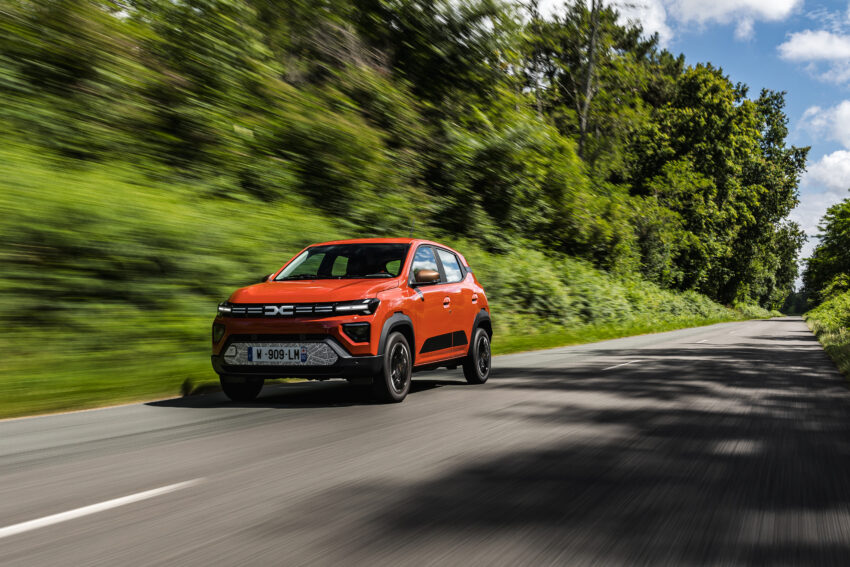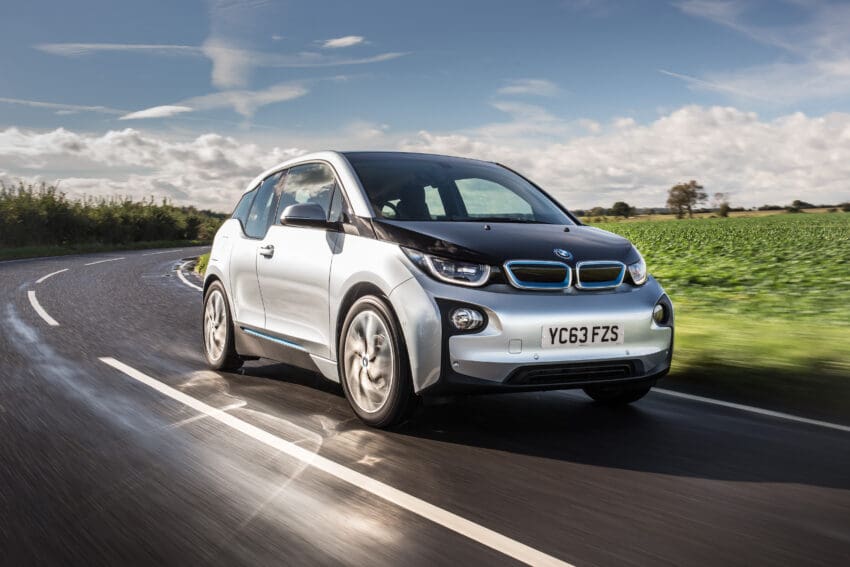James May: Car enthusiasts have a duty to join the EV experiment
The Grand Tour star talks exclusively to EV Powered about why electric cars are the ideal transport but why he’ll never own an electric classic
EV Powered: The last episode Grand Tour saw Jeremy Clarkson talk about how he detested electric cars, describing them as white goods. I don’t think you subscribe to his theory, so could you elaborate where you are on your motoring journey and electric cars?
James May: The thing we forget is the vast majority of cars have always been white goods. They’re utilitarian things. They are appliances. That is true whether they’re powered by petrol, diesel, hydrogen, steam, batteries, whatever.
I think, if you’re a true car enthusiast, you have to take an interest in the future of the car. And that means taking part in the experiment. And if you’re in the fortunate position, as I find myself, of being able to take part in it, then you should. I think you almost have a moral duty to be an early adopter, even if it turns out to be the wrong direction – as hydrogen seems to be for the moment.
We’ve known almost since the invention of the car that electric motors make perfect sense. They’re low maintenance, they’re quiet, they’re clean. They’re easy to operate. The problem has only ever been the storage of electricity. It’s a very cussed animal that doesn’t like to be caged.
The electric car in the early 20th century, certainly in places like New York, was more popular than all other types of car, but they eventually fell foul of battery technology. And I think battery technology is still a problem, but it won’t be conquered unless people use it and push the technology forward by demand.
EVP: So where do you see electric vehicles evolving? Do you see battery technology going crazy and having the ability to drive 1,000 miles, or smaller, lighter batteries taking over and going back to doing 200 miles or something?
JM: I think it’s smaller batteries. This is where electric cars have become slightly wrong footed. The reason we crave cars with a huge range is because we have charging anxiety. It’s not really range anxiety. It’s the thought of having to sit around for anything between half an hour and a day.
So we end up with these cars with enormous batteries, which are very heavy and very expensive and use a lot of resources. Whereas actually for the electric car to be accessible, to be a car of the people, it does need to be more like the Dacia Spring.

It needs to be a bit more modest in its ambitions and recognize that for most people a car with a modest range and, more importantly, a modest price is what will drive it forward.
I’d love an electric car that had a moderate range. It could be 150 miles and therefore a small, cheaper, lighter battery, but that could be recharged in under five minutes. I think that’s when it will really work.
And the next thing that will drive it will be an improvement in battery technology that means people don’t have to fear stopping for a long time.
The argument that a lot of the electric car lobby put forward is that once I’ve driven 150 or 200 miles, I need a break anyway, so I might as well have a cheeseburger while my car recharges. But they always assume that their hunger, the exhaustion of the battery and a suitable charging point occur at the same time and place. And they generally don’t.
So if you’re doing long journeys in electric cars, you end up navigating between fast chargers and it is a bit burdensome and it requires forward planning, which people don’t really like. Cars represent a thing that goes door to door that you use of your own volition when you want to, and for as long as you want to.
I’m also fortunate because I’ve got two houses and they’re 100 miles apart, and they’ve both got garages with chargers in. That’s an extremely fortunate position to be in. I know people who own electric cars, but who park on the street in London and it becomes a bit of an inconvenience for them.
And then there are other people I know who live in flats and things or in really densely populated places in London and Manchester. And the idea of owning an electric car is just horrific for them, I think.
EVP: So they’re still not the right answer for everyone, but what electric car are you driving at the moment?
JM: I’ve currently got a Tesla Model 3 Highland, but before that I had a Model S and I’ve also had a couple of BMW i3s and I’ve had the two Toyota Mirai hydrogen cars.

My first electric car was a BMW i3 RX with the original small battery. I bought that in 2014, so I’m now a 10 year veteran of electric motoring.
But I should also come clean, they’re not my only cars. I do have some petrol engine cars as well, and for some complicated journeys, yes, I go in the 911. But my regular driver is the Tesla.
EVP: We’re speaking shortly after Donald Trump was re-elected. Do you think that and his talk of tariffs strikes fear into the global automotive sector?
JM: No, I think they probably have greater fears looking at what’s happened to VW recently and so on. And I think the change of attitude towards cars and perhaps in Europe, the possible declining use of them, that’s more of a worry.
The whole tariff thing, if it actually comes off, I think is very sketchy. I’m not really a historian, I’m definitely not a politician, but I can’t think of an example in history where tariffs have actually, in the long term, done any good for a domestic industry. So if he does do it, I’d brace yourself for another American car manufacturing disaster like they had in the 70s.
EVP: What’s your opinion on re-engineered classic cars? Should we be taking the internal combustion engines out of 40, 50-year-old cars and swapping them over, or leave those where they are, put sustainable fuels in those and go an alternative route for new cars?
JM: I looked into synthetic fuels years ago when I made a science program for the BBC, and there is something in it. I struggled to see how it’s going to be scaled up to anything beyond the boutique fuel, but it is great news if you’re into classic cars, because it means you can continue to have your Jaguar E-Type engine with this glorious straight-six without feeling guilty about it.
But my honest view about electrifying classics is: buy a new electric car, because modern cars are better anyway. Classic cars are a hobby.
I don’t buy into the idea that if you electrify an MGB, you’re ruining it and you’re destroying our heritage. They’re very common. They’re not rare artefacts. They’re just old white goods. I can see why people would get upset if you did it to a Ferrari 250 GTO or an original De Dion-Bouton because they’re the artefacts of history. But it doesn’t trouble me that people are doing it.
At the same time, I don’t want to do it. I don’t want an electric classic car. I want an electric modern one.

EVP: Also as a 911 driver, you’re potentially going to embrace the Porsche sustainable fuel idea?
JM: Yes. Porsche have been doing a lot of work and investing a lot of money in sustainable synthetic fuels and I hope they can do it.
I like mechanical things. I find internal combustion fascinating, but we should acknowledge that we love it for its flaws. That’s what gives it character, but it comes from actually mechanical inadequacy. The fact that it has to idle, that the torque delivery is uneven. You have all this reciprocating motion, turning to rotary motion, back to reciprocating motion. At the end of it, you just get a rotating shaft. That’s all it’s for.
And that is a job done very easily by an electric motor. So electric motors make sense. But internal combustion is a glorious and fascinating thing. And I enjoy the vibrations from my 911 and my Ferrari.
But day-to-day electric driving where possible is right. It’s quiet. It’s easy. It’s low maintenance. It’s just correct, really. There’s no denying it.






